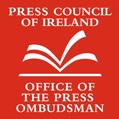
Via Geeks Are Sexy and 9gag.…
the Irish for rights

 In the US, most law journals are run and edited by law students; every law school publishes its flagship law review; and many publish specialist journals as well. Outside the US, most law journals are run and edited by law faculty, and published by legal publishers. Moreover, outside the US, whilst student-edited journals publishing articles written by students are not uncommon, student-edited journals in the US sense, publishing articles written by academics, have been slow to take hold.
In the US, most law journals are run and edited by law students; every law school publishes its flagship law review; and many publish specialist journals as well. Outside the US, most law journals are run and edited by law faculty, and published by legal publishers. Moreover, outside the US, whilst student-edited journals publishing articles written by students are not uncommon, student-edited journals in the US sense, publishing articles written by academics, have been slow to take hold.
Hence, in Ireland, there are many traditional journals; and the student law reviews include the Cork Online Law Review, the Galway Student Law Review, the Irish Student Law Review, the Trinity College Law Review, and the UCD Law Review. Now, hot on the heels of the publication of the first volume of the Irish Journal of Legal Studies, I learn of the appearance of the Irish Law Journal, edited, run and published by students in the Department of Law at NUI Maynooth.
They aim to constitute a valuable academic resource providing a platform for discussion and debate by publishing novel scholarship that will have an immediate and lasting impact on the legal community in Ireland and abroad.…
 Many things about Ireland bemuse visitors to our shores. Two of the most difficult to explain are our electoral system and the programme by which third level places are allocated. I’ll leave the former to other election anoraks for the time being, but the latter is much in the news this week, so I’ll try to give a simple account of how it works.
Many things about Ireland bemuse visitors to our shores. Two of the most difficult to explain are our electoral system and the programme by which third level places are allocated. I’ll leave the former to other election anoraks for the time being, but the latter is much in the news this week, so I’ll try to give a simple account of how it works.
The Central Applications Office (logo, above left) processes all applications to first year undergraduate courses in the country’s various third level institutions. In early summer, students at the end of their secondary (high) school careers sit a state examination, and the results are published in early August. During the course of that final year, most of the students will have filled in a list of their preferred third level courses and returned it to the CAO. In mid-August, the CAO assign university places to students based on their exam results.
Allocation of places is simply a function of demand and supply. A third level institution will inform the CAO of the number of places in a given course, and the CAO’s computer will allot places on the course to the highest qualified applicants who had applied for that course.…
 Some stuff I’ve come across online recently has reminded me of the New York indie rock band, Vampire Weekend, not only the high-profile controversy over the “frustrating” lawsuit against them by a model who claims that they did not have her permission to use an image of her on their “Contra” album cover, but also the lyrics of their 2008 single “Oxford Comma” (pictured left; see background | lyrics | music | YouTube). The Oxford comma is an optional comma before the word ‘and’ at the end of a list; in the song, it’s a metaphor for unnecessary pretention in interpersonal relationships; and in its grammatical meaning it has recently been the focus of discussion by pedants, geeks, and drafters.…
Some stuff I’ve come across online recently has reminded me of the New York indie rock band, Vampire Weekend, not only the high-profile controversy over the “frustrating” lawsuit against them by a model who claims that they did not have her permission to use an image of her on their “Contra” album cover, but also the lyrics of their 2008 single “Oxford Comma” (pictured left; see background | lyrics | music | YouTube). The Oxford comma is an optional comma before the word ‘and’ at the end of a list; in the song, it’s a metaphor for unnecessary pretention in interpersonal relationships; and in its grammatical meaning it has recently been the focus of discussion by pedants, geeks, and drafters.…
 Recent press releases from the Press Council of Ireland have announced two key appointments. Retired diplomat Daithi O’Ceallaigh has been appointed as Chairman of the Press Council from 1 August, succeeding Prof Tom Mitchell (Irish Independent | Irish Times); and retired academic Prof John Horgan has been appointed to a second term as Press Ombudsman from 1 September (Irish Times). Both appointments are for three years. Following the recent recognition of the Press Council for the purposes of Schedule 2 to the Defamation Act, 2009, these appointments are set fair solidify the position of the Ombudsman and the Council in their work to safeguard and promote professional and ethical standards in Irish newspapers and periodicals. The time my therefore be ripe for some hard questions.
Recent press releases from the Press Council of Ireland have announced two key appointments. Retired diplomat Daithi O’Ceallaigh has been appointed as Chairman of the Press Council from 1 August, succeeding Prof Tom Mitchell (Irish Independent | Irish Times); and retired academic Prof John Horgan has been appointed to a second term as Press Ombudsman from 1 September (Irish Times). Both appointments are for three years. Following the recent recognition of the Press Council for the purposes of Schedule 2 to the Defamation Act, 2009, these appointments are set fair solidify the position of the Ombudsman and the Council in their work to safeguard and promote professional and ethical standards in Irish newspapers and periodicals. The time my therefore be ripe for some hard questions.
The UK’s sister organisation to the Press Council, the Press Complaints Commission, has recently completed a thorough and independent review of its governance. The report published earlier this month (pdf) recommended that there should be:
…• A clearer role for the Commission;
• Tougher scrutiny rules;
• More industry engagement with the Commission;
• A stronger Board;
• A stronger lay voice on the content of the Editors’ Code of Practice;
• Greater transparency about appointments;
• Greater openness about the system; and
• More rigorous examination of performance.
 Two recent cases in the European Court of Human Rights demonstrate that there are still large gaps in the protection of freedom of expression in Turkey.
Two recent cases in the European Court of Human Rights demonstrate that there are still large gaps in the protection of freedom of expression in Turkey.
Terrorist speech
In Gözel and Özer v Turkey (43453/04 and 31098/05; 6 July 2010 | judgment (in French); press release (in English)), a Turkish magazine published an article that contained a statement by the central committee of the banned Marxist-Leninist/Turkish Communist Party. Another published an article about the founder of the Marxist movement in Turkey which included a statement by eight people who were in custody for belonging to illegal organisations. The editors of both magazines were convicted of pubishing statements of illegal armed organisations.
The ECHR noted that the editors had been convicted for publishing texts that the domestic courts had characterised as “terrorist organisation statements” without taking into account their context or content, and held that to condemn a text simply on the basis of the identity of the author would entail the automatic exclusion of groups of individuals from the protection afforded by Article 10. It therefore concluded that since the opinions expressed did not constitute hate speech or stir up violence, the Respondent was not entitled to rely on national security to restrict the public’s right to receive information, and that Article 10 had therefore been breached.…
 Prof Adrienne Stone (pictured left), Director of Centre for Comparative Constitutional Studies in the Melbourne Law School has just made a very interesting article available on SSRN. It is The Comparative Constitutional Law of Freedom of Expression, forthcming as a chapter is in Rosalind Dixon and Tom Ginsburg (eds) Research Handbook in Comparative Constitutional Law (Edward Elgar, forthcoming, 2011). Stone argues:
Prof Adrienne Stone (pictured left), Director of Centre for Comparative Constitutional Studies in the Melbourne Law School has just made a very interesting article available on SSRN. It is The Comparative Constitutional Law of Freedom of Expression, forthcming as a chapter is in Rosalind Dixon and Tom Ginsburg (eds) Research Handbook in Comparative Constitutional Law (Edward Elgar, forthcoming, 2011). Stone argues:
…Freedom of expression is among the most widely protected of constitutional rights. Rights of freedom of expression can be found in constitutions drawn from all continents. … Even in those few democracies without comprehensive constitutional protection of rights, freedom of expression finds constitutional protection in other ways. It can plausibly be argued that parliamentary systems … – even in the era before the adoption of charters of rights – recognized a constitutional principle of freedom of expression that, though not enforceable by judicial review, was understood as a fundamental value that informed the reading of statutes and the common law. In addition, there are some legal systems that recognize a judicially enforceable principle of freedom of expression despite the absence of a written constitutional right.
… some scholars … question whether … the comparing free speech principles across constitutional systems is practical or useful for courts interpreting or applying constitutional principles of freedom of expression … The complexity of (and disagreement about) underlying philosophical commitments, the opacity of judicial decision making, and cultural specificity of any particular body of law, … [are] formidable problems for the comparativists, … and the] case for comparativism may be weaker in relation to constitutional principles have developed their own rich set of resources and a distinctive conception of freedom of expression.
 As prefigured here a little while ago, there is a new peer-reviewed Irish legal journal, the Irish Journal of Legal Studies. The publication of Volume 1, Issue 1, 2010 has just been announced on the journal’s homepage, and the contents of the first issue are as follows:
As prefigured here a little while ago, there is a new peer-reviewed Irish legal journal, the Irish Journal of Legal Studies. The publication of Volume 1, Issue 1, 2010 has just been announced on the journal’s homepage, and the contents of the first issue are as follows:
Sexual Violence: Witnesses and Suspects, a Debating Document by Mr Justice Peter Charleton and Stephen Byrne. From the abstract:
This article explores the rules of evidence and criminal procedure as they apply in sexual offence cases, in the context of recent empirical accounts of attrition rates in sexual offences, and having regard to the rights of the accused and the need to maintain a fair balance that limits the potential for injustice.
The Constitution and the Protestant Schools cuts Controversy: Seeing the Wood for the Trees by Eoin Daly. From the abstract:
This article argues that special financial arrangements for Protestant secondary schools, recently controversially withdrawan, constituted a species of constitutionally permissible, if not constitutionally required, accommodation of religion. This controversy also serves as a prism through which to view the broader limitations of the constitutional framework for the guarantee of religious freedom in the education context.
Managerialism in Irish Universities by Professor Steve Hedley.…